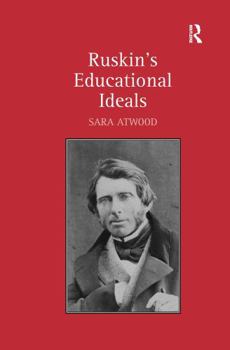Ruskin's Educational Ideals
Select Format
Select Condition 
Book Overview
Focusing on John Ruskin as a teacher and on his greatest educational work, Fors Clavigera, Sara Atwood examines Ruskin's varied roles in education, the development of his teaching philosophy and style, and his vision for educational reform. Atwood maintains that the letters of Fors Clavigera constitute not only a treatise on education but a dynamic educational experiment, serving to set forth Ruskin's ideas about education while simultaneously educating his readers according to those very ideas. Closely examining Ruskin's life and writings, her argument traces the development of his moral aesthetic and increasing involvement in social reform; his methods and approach as an art instructor; and his dissatisfaction with contemporary educational practice. A chapter on Ruskin's legacy takes account of his influence on late Victorian and Edwardian educators, including J. H. Whitehouse and the Bembridge School; the Ruskin colonies in Tennessee, Florida, and Georgia; and the relevance of Ruskin's ideas to ongoing educational debates about teacher pay, state/national testing, retention, and the theory of the competent child. Historically well-grounded and forcefully argued, Atwood's study is not only a valuable contribution to scholarship on Ruskin and the Victorian period but an enjoinder for us to reconsider how Ruskin's educational philosophy might be of benefit today.
Format:Paperback
Language:English
ISBN:1032927860
ISBN13:9781032927862
Release Date:October 2024
Publisher:Routledge
Length:202 Pages
Customer Reviews
0 rating





